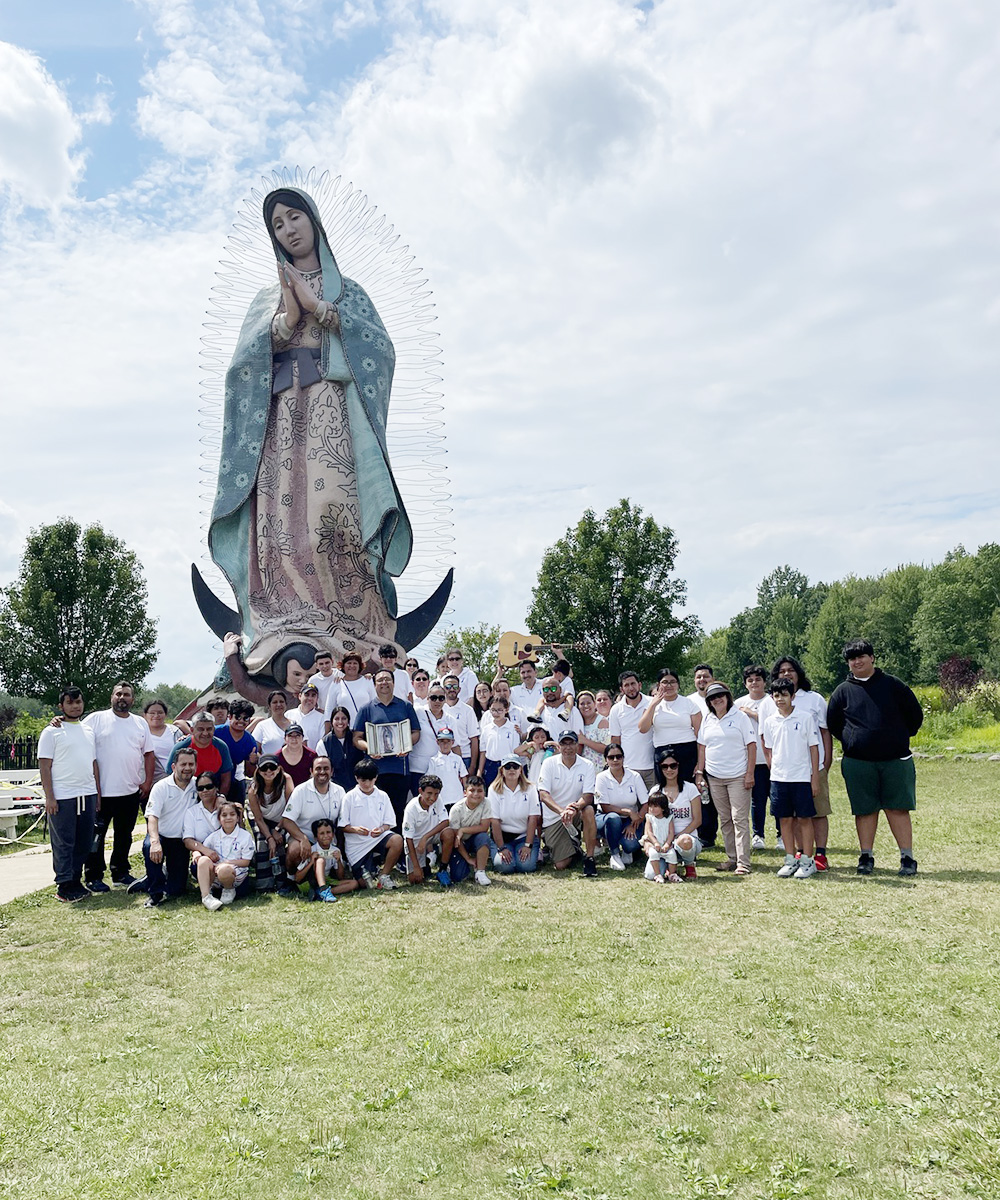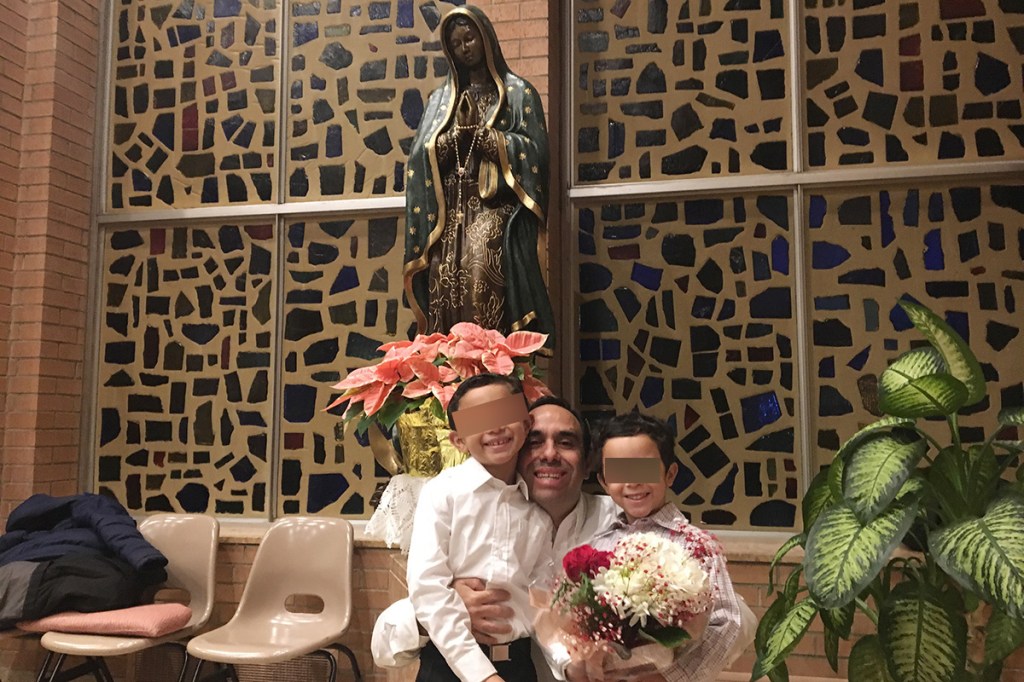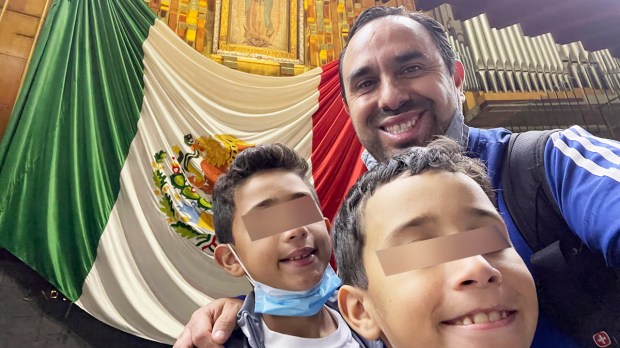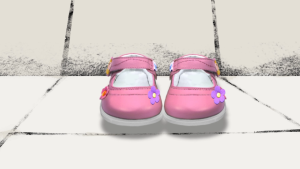Rafael Garcia Flores was born in Mexico City, is 48 years old, and is the father of two children. He has an engineering degree and a master’s degree in electronic engineering from a university in New Mexico. He currently lives in Detroit, separated from his wife who divorced him and remarried, but before God he will always be her husband. Despite all his sufferings and difficulties, he has found in the gaze of Our Lady of Guadalupe a refuge of chastity and service to his neighbor. This is his story.
Living as a separated man
“I continue in my duties as a father and I continue to pray for her. Now I focus a lot on my children. What really changed my life, after almost eight years, was a reencounter with my faith.”

Wounds in his heart
Rafael shares that the separation and divorce from his wife was painful for him and for his children, who were very young at the time (ages 2 and 4).
But for Rafael, this separation has contributed to a radical change in the way he was living and in his priorities.
“It really made me suffer, but I think it was a door that opened since I stopped living my faith as something only for Sundays, something that was there only by tradition. After the pain of the divorce, it became a very strong conviction.”
Pain and conversion
For Rafael, that conversion changed his relationship with Jesus, with his children, and with his parents. “They had their conversion too,” he says.
His father passed away three years ago, but he told Rafael on his deathbed that it was really a blessing that this separation and divorce had happened despite the suffering he went through, because many graces and blessings had come from it.
“With everyone, I think I have changed, I have figured out what I have to do. I have set my priorities and I understand that now what matters is to try to do what is best for others, not for ourselves. I’ve really found a lot of peace.”
The day his wife left
The day the separation happened, the moment his wife left him was very unexpected for him. That week was decisive in his life, Rafael recalls. He contacted close friends who offered him the opportunity to stay with them, “and the next day we went to Mass,” he adds.
An unexpected gift: The power of the Holy Rosary
Rafael recalls that as he was leaving Mass a person arrived who, without any preamble, told him, “Take this.” It was a rosary scapular, which he has kept since that day. He never knew who that person was or where they came from.

“And that’s when my whole conversion began. For eight years now I haven’t stopped praying the Rosary.”
“I had never prayed the Rosary with my parents, but from that day on, I started praying it daily.”
“My parents joined in and my dad died praying the Rosary.”
Rafael relates that his dad died of cancer, but he was able to talk with him a lot before he passed away. His father received Communion every day, and on the last day of his life a priest went to his house and gave him Communion. Rafael considers this event a miracle of the Holy Rosary.
“The Rosary is a sword, but only if it’s prayed well, because we can repeat it without understanding what we’re saying.”
“The Rosary, the Hail Mary, really is a prayer to Jesus.”
“Holy Mass and receiving Communion is fundamental”
Rafael receives Communion every week, and usually he goes to Mass more than once during the week.
“That’s pretty much how my weekends go. Mass is the greatest prayer. It’s the one that should change us. It means participating and changing ourselves to be better,” he says.
Chastity is possible for a divorced person
Rafael shares something very personal: “I’ve lived in chastity all this time that I’ve been separated and divorced.”
“There is no doubt in my mind,” he said, “that most Catholic marriages do not live a marriage of chastity and self-giving. I did not live my marriage in a Catholic way, but now I remain chaste thanks to the sacraments.”
Mistakes
Rafael understands that he should’ve changed much earlier; and like every sinner, he recognizes that sometimes he falls, but he is clear about where he has to go when he needs forgiveness: “I tell my children that we’re imperfect, but the greatness of being imperfect is to recognize it and be able to go to Jesus for help, and that help is forgiveness.”

Regarding his children, he explains that “they had to suffer from an early age and I’ve told them that in life what is certain is that you are born, you die, and you’re going to suffer in between. So, if we already know that and we know that probably the greatest suffering will come from the people we love the most, then, what do we do with that problem? Well, the solution is forgiveness.”
“Love without suffering is not love, and suffering has to lead us to forgiveness. And my children know that without having read it in any book.”
Forgiveness: “I would be willing to take her back”
For Rafael, forgiveness is not about saying, “Today I forgive her and it’s over.” You have to forgive every day, because the memory is always there. So, you forgive every morning. It’s the choice to forgive constantly.
“When I’m asked if I still love my wife … I think we all love our wife, even if she has remarried. I love her, but the way I love her is different.”
“And yes I would be willing,” he adds, “to receive her back. Of course I would! There would be an additional healing process, but I don’t see why not. If she’s finding Jesus, yes, but if not, well, why would I go back to the same past where I was living away from God?”
Remarriage?
He hadn’t thought about remarrying at first. His wife did want to remarry, and sought an annulment, but the Church ruled against it.
“I for one wasn’t seeking it, but my wife sought it and was turned down.”
Raphael recounts: “With that we went on for a few years, but five years after the breakup I said, ‘Lord, do you want me to carry this cross? You have to tell me what you want me to do.’ It was a Good Friday. There was a big cross and there were two people carrying the cross, one on the left side and one on the right side. I was in the pews on the left side and I said to the Lord, ‘If you want me to carry this cross, you have to tell me.'”
Then something unexpected happened.
“On the right side one person got tired and another person offered to help him. On my side there was another person and I felt the call to help him. I remember I said to God, ‘If you want me to carry that cross, help me carry it, but you have to call me by name.’ And at that moment the person who was carrying the cross on the right side said to me: ‘Rafael, come and carry the cross.'”
“It was a difficult answer, strong but clear. Since then, I have been here, praying for her, for my wife.”
Our Lady sustains him
“As for my relationship with the Our Lady of Guadalupe, it has been something extraordinary,” he says.
For Rafael Garcia, life has not been easy. He expresses it by saying that he could’ve thrown himself into alcohol or drugs or fallen into depression after his wife left him, but God kept him from losing himself.
And thanks to God’s will, he said yes to the love of Our Lady of Guadalupe. A yes to the Holy Rosary that allowed him to achieve the impossible: chastity, forgiveness, and love for his children and his wife in spite of the great wound in his heart.
He hasn’t stopped praying, serving, and following the voice of God in his heart. Maybe someday he will wake up to find his wife knocking at his door. Even if this does not happen, his testimony will remain forever, because his love was greater than his resentment.



